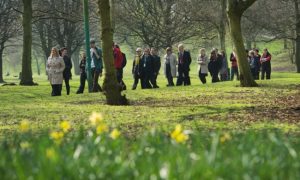James is a researcher with experience using both qualitative and quantitative research methods and an understanding of the social determinants of health, particularly the role of work and how the psychosocial work environment impacts on employees’ mental and physical health and wellbeing.
His PhD explored the impact of working in a social enterprise on employee health and wellbeing through the lens of ‘good’ work, culminating in the development of an empirically informed conceptual model that illustrates how working in a social enterprise may lead to improved health and wellbeing outcomes.
Following the completion of his PhD, he secured the role of Researcher at the Work Foundation, a think-tank based in London, which is dedicated to promoting the concept of ‘good’ work and its benefits for employees and employers alike. Drawing on the knowledge and research skills acquired through his PhD, he is, primarily, focused on developing evidence-based policy recommendations relating to the health and wellbeing at work agenda. Recent projects include: overseeing the development of an ‘early intervention toolkit’ designed to make the case, using the example of musculoskeletal conditions, for the implementation of early intervention services across the European Union; and a service evaluation of a newly-formed early intervention clinic, based in Leeds, which aims to get people signed-off work with a musculoskeletal condition back to work as soon as possible. To read more about this see – http://earlyinterventiontoolkit.com
About James
James was awarded a BA (Hons) in History and Politics from Keele University in 2008 and an MA in Political Economy from the University of Manchester in 2010. His MA dissertation explored the relationship between income inequality and health, which focused his interest on the areas of public health and health inequalities. Prior to starting a PhD in Public Health at the University of Salford, James conducted a literature review for the university in 2011 on the impact of working for a social enterprise on employee health and wellbeing – this project served as a platform for his PhD research.
Twitter – @jbchandler
Details of James’s PhD
His PhD explored the experience of working for a social enterprise – an organisation with social aims that uses profits for that purpose – and whether these organisations provide good quality work conducive to employee health and wellbeing. Using a mixed-methods approach, comprising (i) a mapping study that identified social enterprises active in the Greater Manchester region, (ii) semi-structured qualitative interviews, and (iii) a survey completed by social enterprise employees across the region, the research finds that social enterprises provide good quality work environments conducive to employee health and wellbeing – furthermore, when compared to a national sample of individuals working in non-social enterprise organisations, social enterprise employees report significantly higher levels of control over their work, support at work, job satisfaction and job-related wellbeing.
|
Chandler, James 2016, A study to explore the impact of working in a social enterprise on employee health and wellbeing in Greater Manchester , PhD thesis, University of Salford. |
New reports :
Work Foundation’s Health at Work Policy Unit publishes its latest report: Who cares? The implications of informal care and work for policymakers and employers.
Other papers in the series include:
• More than ‘women’s issues’
• Men’s mental health and work: the case for a gendered approach to policy
• Managing migraine: a women’s health issue?
For more information, see our background paper and accompanying infographics.
Read the full report or executive summary.
Please feel free to contact the report’s author, Dr James Chandler, for more information.


